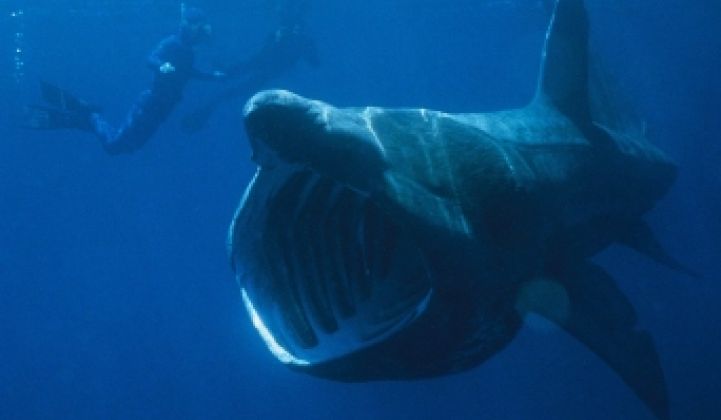Teach a man to fish and he'll drive 200 miles.
That's one way to describe the new business strategy at LiveFuels, one of the earliest algae fuel companies.
To date, the company has largely discussed raising different species of algae in open ponds to produce fuels. Today, it stated that it will grow algae, but then let filter-feeding fish eat it. It will then capture the fish, squeeze them for oil, and then feed the oil to a refinery.
Having the fish feed on algae clearly will require more algae than would be required if the algae were harvested directly. The company will also have to find ways to optimize the growth of its grazer fish and algae.
But the food-chain business model has other advantages. LiveFuels won't have to build complex bioreactors complete with carbon dioxide bubblers. It also won't have to extract algae from water, an arduous task considering that only a few grams of usable algae are found in every liter of water. The fish will make the oil and sequester it in easily recognizable organs in their bodies. Some other researchers have discussed employing tilapia for this and harvesting fish oil and fish excrement.
"We know a lot more about fish acquaculture than alage farming," said Eric Wesoff with GTM Research, who nonetheless added that the science and economic challenges await.
The company has a test pond in Brownsville, Texas. Algae blooms will be fertilized by pollution streams from the Mississippi. (Earlier, it had planned to build the test pond in California.)
Can fish power become economical? Can LiveFuels come up with defensible intellectual property that will keep every Tom, Dick and Grady with a fishin' hole from undercutting them in price? Who knows, but it's another great twist in the algae saga.
Competitors and experts have wondered how the company would control things such as invasive species or how to optimize oil growth with different types of algae. Some of the early technology for the company came out of Sandia National Labs.
The company didn't state whether it would one day "milk" the fish for oil the way some algae companies say they will milk algae, but it doesn't seem likely. Liposuction techniques haven't been perfected for fish yet. Like other algae companies, LiveFuels will likely sell the additional protein to pet-food manufacturers.



